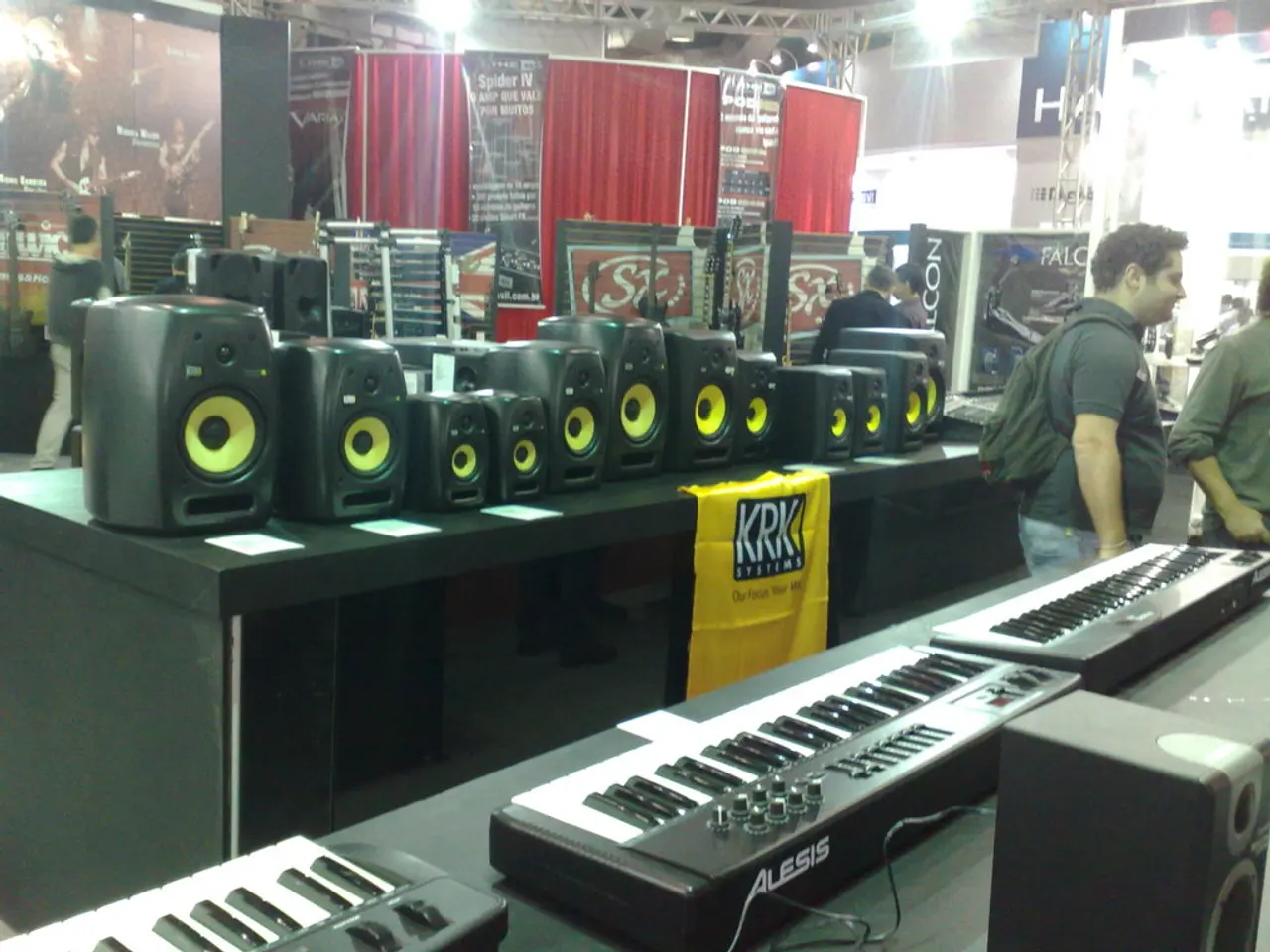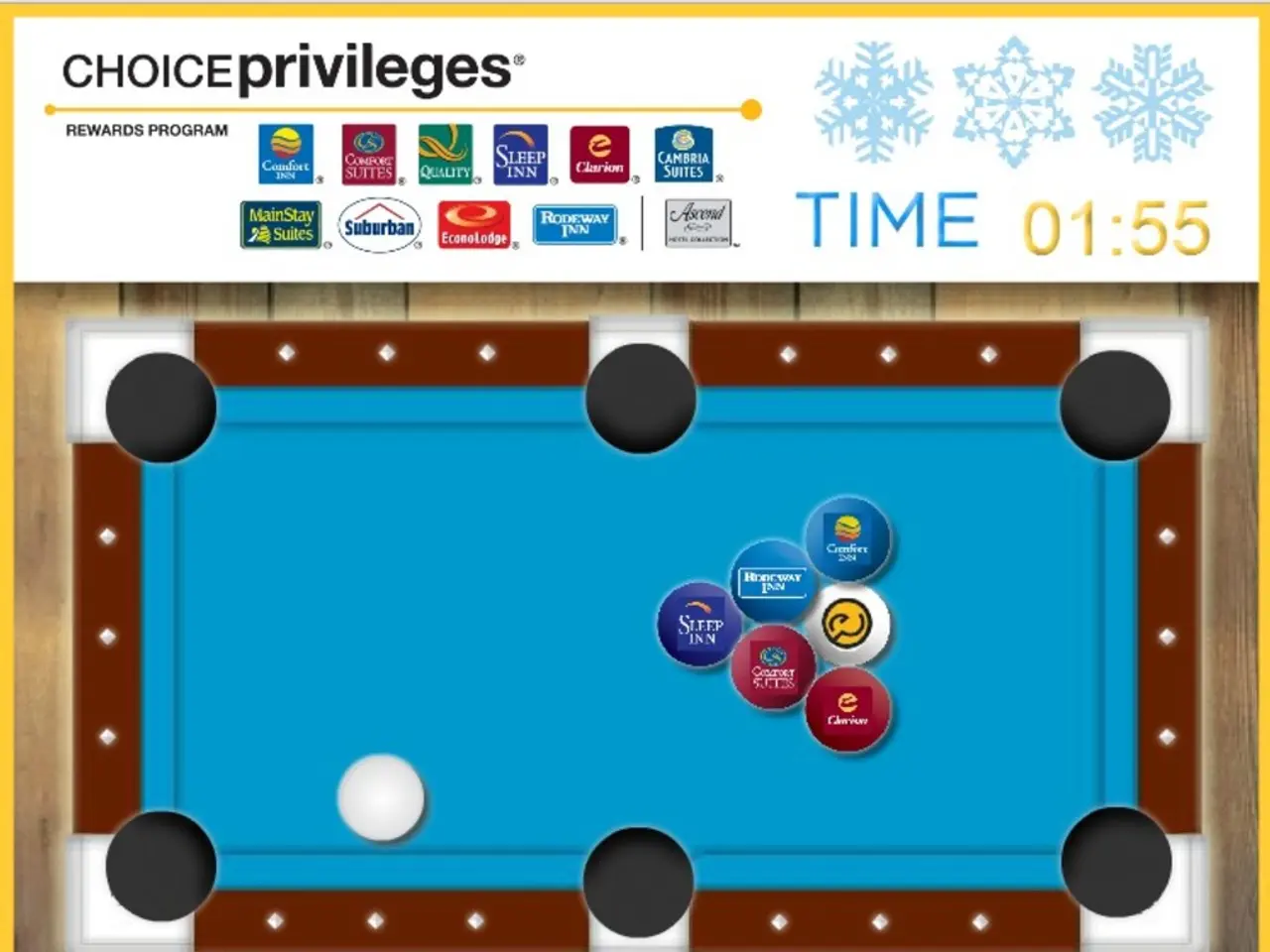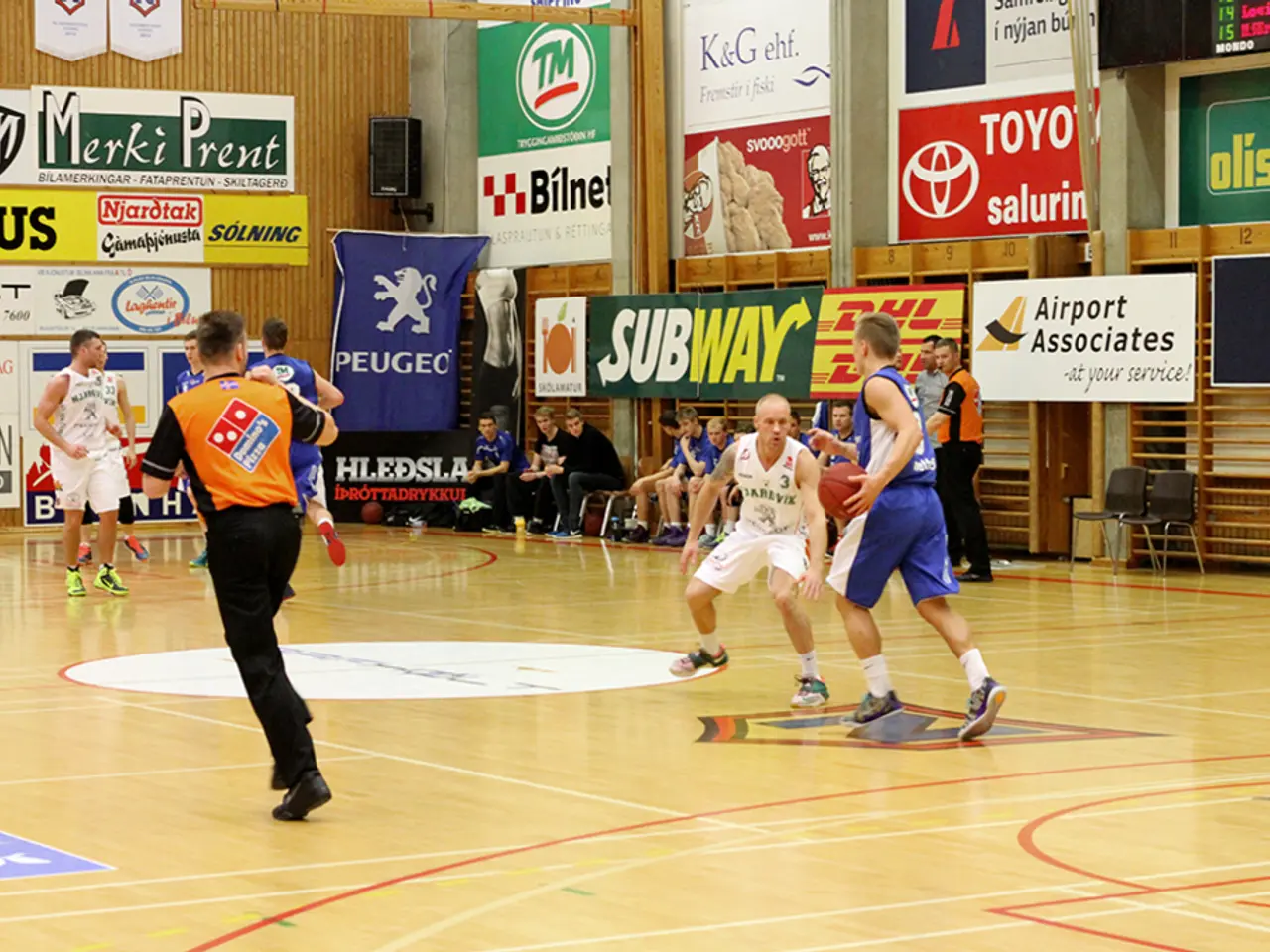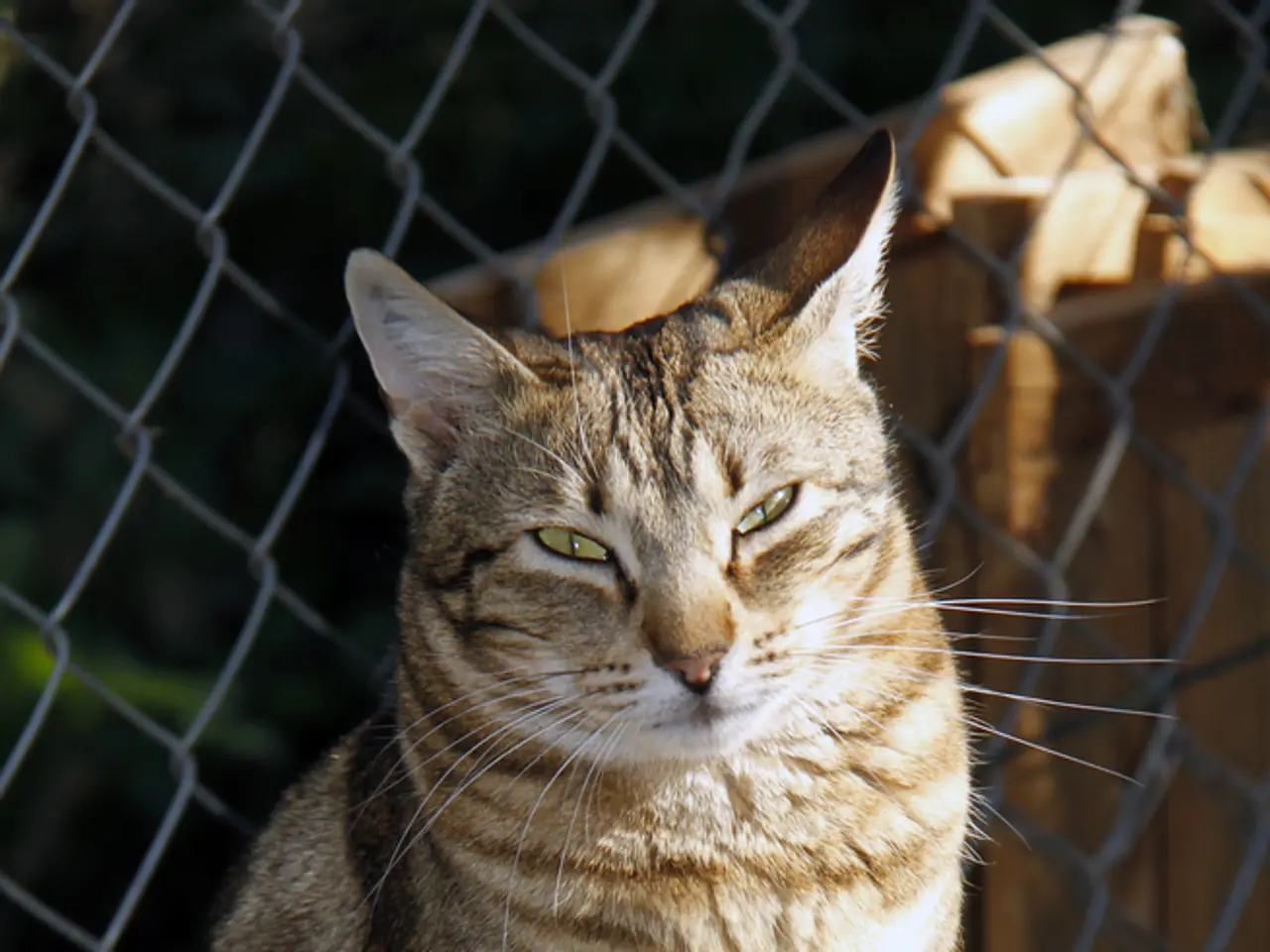Investigation by The Washington Post on Lottery-like Games, Stakeholders in Digital Gambling Urge Regulation of Online Gaming
In the rapidly evolving world of online gaming, sweepstakes casinos are finding themselves under increasing scrutiny from regulatory bodies across the United States.
As of mid-2025, these platforms face intensifying legal scrutiny, expanding bans, and enforcement actions across a growing number of states. This crackdown, which has been gathering momentum since last year, marks a significant shift in the regulatory landscape for the sweepstakes casino sector.
Several states have banned sweepstakes casinos outright, considering them illegal gambling operations rather than legal social games. These include Connecticut, Idaho, Montana, New York, Washington, and soon New Jersey and possibly California. In these states, operators such as Virtual Gaming Worlds (VGW) and its internet gaming brands like Chumba Casino, LuckyLand Slots, and Global Poker have received cease-and-desist letters from gaming regulators [1][3][4].
State gaming regulators and attorneys general have issued multiple cease-and-desist orders targeting unlicensed sweepstakes casino operators in states such as Michigan, Maryland, Louisiana, Pennsylvania, Arizona, Mississippi, Nevada, and others. Enforcement actions have intensified in the first half of 2025 [1][3][4].
Private lawsuits have also surfaced, such as in Alabama where plaintiffs sued sweepstakes operator Stake for offering unlicensed games, and celebrity endorsements have faced legal challenges, with Ryan Seacrest being sued for promoting sweepstakes casinos [3].
Legislatures in states including Montana, Connecticut, New Jersey, Louisiana, Maryland, and Nevada have passed or advanced bills to ban or heavily regulate sweepstakes casinos. Some bills impose penalties not only on operators but also on affiliates, suppliers, influencers, and investors [1][3][4].
Despite these crackdowns, sweepstakes casinos remain legally available in many states. The industry argues that because these platforms do not take real money bets directly and instead rely on virtual currency awarded via sweepstakes mechanisms, they are social gaming platforms exempt from gambling laws. However, this argument is increasingly challenged by regulators [2][5].
Consumer and industry groups report that most players perceive sweepstakes casinos as a form of gambling, prompting calls from gaming associations for tighter regulation or bans [5]. The regulatory pressure on sweepstakes casinos may accelerate the legalization and expansion of fully regulated online casinos in some states, as these states look to provide safe, regulated alternatives to sweepstakes sites, which often lack consumer protections [4].
The Sports Betting Alliance, consisting of DraftKings, FanDuel, BetMGM, and Fanatics, lobbies state lawmakers to authorize sports betting, advocating for a regulated market. They suggest that states can create a regulated marketplace for iGaming, offering regulator-tested products and verified consumer protections, to combat unregulated, offshore platforms [6].
Currently, iGaming is only permitted in Connecticut, Delaware, Michigan, New Jersey, Pennsylvania, Rhode Island, and West Virginia. Online sports betting is legal in only 30 states and Washington, D.C., but online sports wagering is being conducted in all 50 states through offshore platforms [7].
The article was published on December 2, 2024, by Rick Maese, a features writer for The Washington Post, who investigated online "sweepstakes" casinos. The article suggests that these platforms prey on vulnerable individuals and provide no responsible play protections [8].
As of the last update on June 23, 2025, sweepstakes casinos have paid celebrities millions for endorsing their apps, with Ferrari's Formula One team being sponsored by VGW. A 41-year-old transportation professional in St. Louis admitted to purchasing almost $100,000 worth of sweeps coins in one year [9].
Americans poured almost $6 billion into sweeps casinos last year, with the consultancy Eilers & Krejcik projecting that number to more than double in 2024 [10]. When free coins run out, or if a player wants to play for real money, sweeps casinos offer a secondary digital currency [11]. Sweepstakes casinos operate from iGaming-friendly jurisdictions such as Malta, the Isle of Man, the Philippines, Gibraltar, Curacao, and Anjouan [12].
References:
- Casino.org
- PlayUSA.com
- LegalSportsReport.com
- OnlinePokerReport.com
- GamblingCompliance
- The Sports Betting Alliance
- American Gaming Association
- The Washington Post
- KMOV
- Eilers & Krejcik
- Sweeps Coins
- iGaming Business
- In the United States, sweepstakes casinos are under escalating regulatory pressure, with states like Connecticut, Idaho, Montana, New York, Washington, and potentially New Jersey and California banning them due to their perceived status as illegal online gambling operations.
- As a result of this crackdown, operators such as Virtual Gaming Worlds (VGW) and its internet gaming brands like Chumba Casino, LuckyLand Slots, and Global Poker have received cease-and-desist letters from gaming regulators in multiple states.
- State gaming regulators and attorneys general have issued cease-and-desist orders to unlicensed sweepstakes casino operators in states like Michigan, Maryland, Louisiana, Pennsylvania, Arizona, Mississippi, Nevada, and others, while enforcement actions have intensified throughout the first half of 2025.
- Private lawsuits have arisen against sweepstakes operators, with plaintiffs suing operators like Stake for offering unlicensed games, and celebrities like Ryan Seacrest facing legal challenges for promoting sweepstakes casinos.
- Some legislatures, including Montana, Connecticut, New Jersey, Louisiana, Maryland, and Nevada, have advanced bills to ban or heavily regulate sweepstakes casinos, imposing penalties not only on operators but also on affiliates, suppliers, influencers, and investors.
- While sweepstakes casinos remain available in many states, the industry argues that they are social gaming platforms exempt from gambling laws, but this argument is increasingly being challenged by regulators.
- Consumer and industry groups report that most players consider sweepstakes casinos a form of gambling, prompting calls for tighter regulation or bans from gaming associations.
- As the regulatory pressure on sweepstakes casinos increases, there may be more interest in the legalization and expansion of fully regulated online casinos in some states, offering safe, regulated alternatives to sweepstakes sites, which often lack consumer protections.




